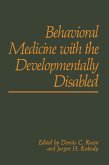What do we know about behavioral analysis and intervention in educational settings? Given that educational institutions were among the first to embrace the new technology of behavior change in the late 1950s and early 1960s, it is apparent that we have had the opportunity to learn a great deal. The evolution of the field of behavior therapy has witnessed a change in the behavior therapist from an adolescent fascination with repeatedly demonstrating the effectiveness of the new technology to a mature recognition of the complex implications of the behav ioral paradigm for individuals, systems, and society. Many "facts" now taken for granted were considered impossibilities a mere two decades ago. In her 1986 presidential address to Division 25 of the American Psychological Association, Beth Sulzer-Azaroff reviewed a number of changes in attitude in education that were strongly influenced by behavior therapy. Most educators now agree that (a) everyone can learn, (b) complex skills can be taught, (c) precise, general, and durable performance can be taught, and (d) barriers to learning can be overcome. In addition, we would add that behavior therapy is being applied to increasingly more complex human problems, such as social skill deficits, internalizing disorders, and dysfunctional systems and organizations.
Dieser Download kann aus rechtlichen Gründen nur mit Rechnungsadresse in A, B, BG, CY, CZ, D, DK, EW, E, FIN, F, GR, HR, H, IRL, I, LT, L, LR, M, NL, PL, P, R, S, SLO, SK ausgeliefert werden.









